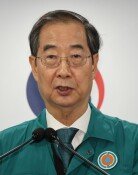Opposition lawmaker's criticism on Daewoo union's strike
Opposition lawmaker's criticism on Daewoo union's strike
Posted October. 14, 2016 07:31,
Updated October. 14, 2016 07:42
Back in 2007, I met lawmaker Hong Young-pyo of the Minjoo Party of Korea, who was leading the Korea-U.S. Free Trade Agreement (FTA) Conclusion TF under the Roh Moo-hyun administration. At that time, Hong elaborated on the importance of the trade deal for the Korean economy to me who was then a chief editor on trade negotiations. I still recall his fresh and surprising career change from a labor activist to a "free trade ambassador."
The third-term lawmaker was former activist from his college years. After joining Daewoo Motor in 1982, he became a founding member of the union. He was one of the key members who led the strike on Daewoo Motor's Bupyeong plant in 1985. After serving three public positions under the Roh administration, Hong became a lawmaker of the Democratic Party through the by-elections in 2009 under the Lee Myung-bak administration. After making his path to the National Assembly, there were brief moments when he still could not rid off his hard-line stance, but there were also cases when he showed rationalism. During the parliamentary inspection in 2014, he prepared his sources by sending e-mails to state agencies and businesses without summoning one witness from the business, and was selected as Dong-A Ilbo's "The Man of the Parliamentary Inspection."
"How many Koreans would accept Hyundai Motor union's strike? I have heard from the union several times, but I could not resonate with them no matter how they tried to persuade me," Hong said during his interview with the Chosun Ilbo. "SME employees and part-time workers receive only 50 percent and 30 percent of the income of employees working for conglomerates." Many Koreans will nod their heads to Hong who said that it's time for the union to rethink about their strike, as there are even saying that customers will boycott Hyundai Motor.
Despite their personal concerns on "hard-line unions" such as Hyundai Motor or Hyundai Heavy Industries, many opposition lawmakers keep silent or give a push to unreasonable demands from militant union members, as they are afraid of being marked by the labor unions. Against this backdrop, it is indeed appreciable to see a long-term lawmaker from the opposition party who once spearheaded the Korean labor movement confront the "inconvenient truth." We would also like to see Hong take active participation in passing the labor reform act, which will help ease the pains of unemployed youth as the chairman of the parliamentary committee on Environment and Labor.
권순활논설위원 shkwon@donga.com







